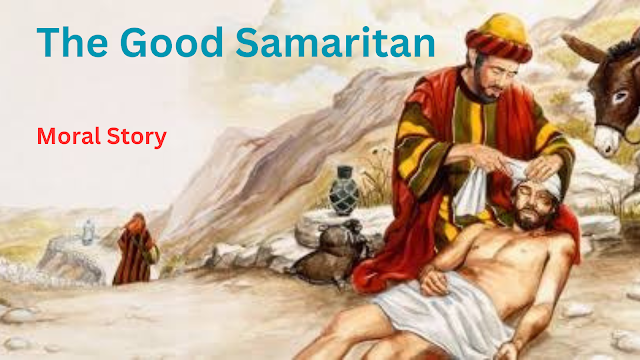Moral stories have a timeless appeal and offer valuable lessons that can shape our behavior and attitudes. They teach us essential values such as respect, responsibility, fairness, honesty, and compassion—qualities that are fundamental for building a harmonious society. These stories are not just for children; they serve as reminders for all ages to live by these virtues. In this blog post, we’ll explore five compelling moral stories that beautifully illustrate these core values.
1. The Elephant and the Ant: A Lesson in Respect
The Elephant and the Ant: A Lesson in Respect |
Once upon a time, in a dense forest, lived an arrogant elephant who often ridiculed smaller animals. He would trample on ants, splash water on rabbits, and mock the birds for their size. The other animals feared and avoided him, except for a brave little ant.
One day, the elephant was bathing in the river when he saw the ant and decided to taunt her. "Look at you, so tiny and insignificant!" he laughed. Unfazed, the ant replied, "Size doesn't determine worth, Mr. Elephant. You should learn to respect others regardless of their size."
The elephant, amused by the ant’s boldness, ignored her words. But as fate would have it, the very next day, the elephant stepped on a thorn and cried out in pain. The tiny ant came to his aid and skillfully removed the thorn. Grateful and humbled, the elephant realized the importance of respecting every creature, big or small.
Moral:
Respect is a fundamental value that recognizes the worth of every individual, regardless of their size or status.
2. The Boy Who Cried Wolf: A Tale of Responsibility
 |
The Boy Who Cried Wolf: A Tale of Responsibility |
In a quaint village nestled in the hills, there lived a young shepherd boy who tended to a flock of sheep. He was often bored and, in his quest for entertainment, would cry out, "Wolf! Wolf!" The villagers would rush up the hill to help, only to find the boy laughing at them for falling for his prank.
This happened several times until one day, a real wolf appeared. The boy cried out, "Wolf! Wolf!" in genuine fear, but this time, the villagers, tired of his false alarms, ignored him. The wolf attacked the sheep, and the boy learned a hard lesson about the consequences of his actions.
Moral:
Responsibility is about being accountable for one’s actions. It means being truthful and reliable, as false alarms can lead to real consequences.
3. The Honest Woodcutter: A Parable of Honesty
 |
The Honest Woodcutter: A Parable of Honesty |
In a small village near a dense forest, there lived a poor woodcutter who relied on chopping wood to make a living. One day, while cutting a tree near a river, his axe slipped from his hands and fell into the deep water. Distressed, he sat by the riverbank, lamenting his loss.
Suddenly, a water sprite emerged from the river, holding a golden axe. "Is this your axe?" the sprite asked. The woodcutter shook his head and replied, "No, that's not mine." The sprite then brought out a silver axe, and again, the woodcutter said, "No, that one is not mine either."
Finally, the sprite presented his old, rusty iron axe. The woodcutter joyfully exclaimed, "Yes, that’s my axe!" Impressed by his honesty, the sprite rewarded him with all three axes, teaching him that honesty is always rewarded.
Moral:
Honesty is a virtue that builds trust and integrity. Being truthful, even when faced with temptations, earns respect and can lead to unexpected rewards.
4. The Good Samaritan: A Lesson in Compassion
 |
The Good Samaritan: A Lesson in Compassion |
One day, a traveler was walking down a lonely road when he was attacked by robbers who stole his belongings and left him injured on the roadside. Several passersby, including a priest and a Levite, saw the man but chose to ignore him, crossing to the other side of the road.
Then came a Samaritan, who, despite being from a different community and often looked down upon, felt compassion for the wounded man. He tended to the man’s wounds, put him on his donkey, and took him to an inn where he cared for him until he recovered. The Samaritan even paid the innkeeper to look after the man until he was well enough to travel.
Moral:
Compassion is about caring for others, regardless of their background or circumstances. It is an essential value that transcends boundaries and fosters kindness and empathy in society.
Conclusion
Moral stories serve as powerful tools for teaching and reinforcing core values. Stories like "The Elephant and the Ant," "The Boy Who Cried Wolf," "The Tortoise and the Hare," "The Honest Woodcutter," and "The Good Samaritan" provide timeless lessons in respect, responsibility, fairness, honesty, and compassion. By reflecting on these stories, we can learn to embody these virtues in our daily lives and contribute to a more just, empathetic, and harmonious world.







